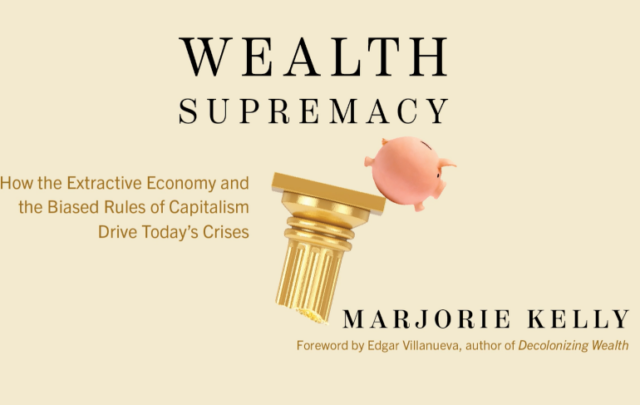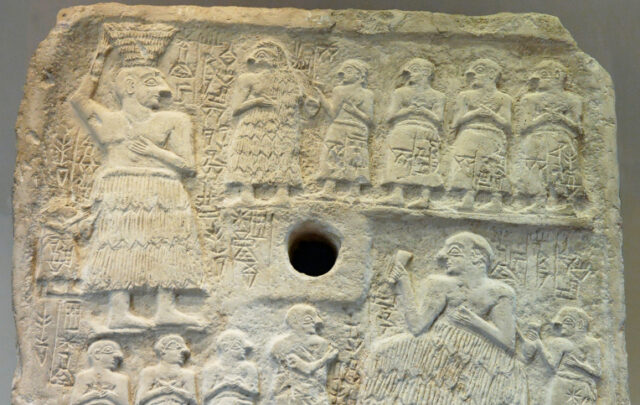 “An Economics of Provision begins with an assumption that the purpose of the economy is to provide people with the provisions they need for a good life. A “civic” economics of provision proposes that citizens—members of the civic—should work together in designing such systems. Several are now advancing the idea of a provisioning economy, and I hope this piece adds to their contributions.
“An Economics of Provision begins with an assumption that the purpose of the economy is to provide people with the provisions they need for a good life. A “civic” economics of provision proposes that citizens—members of the civic—should work together in designing such systems. Several are now advancing the idea of a provisioning economy, and I hope this piece adds to their contributions.
The particular characteristic of a provisioning economy, as I proposed in Civilizing the Economy, is that it organizes the economy around different systems of provision, such as the food or housing or education systems. Instead of speaking of production, or knowledge, or money, or energy in general terms, it speaks of these things in terms of their role in particular systems of provision. Instead of thinking of money as belonging to financial markets, for example, we would think of the role of money in different systems of provision.
To illustrate this peculiar view of an economics of provision, let’s begin with one provision we all need: food. For most of us, our access to food occurs in a complex system of various agencies and institutions. This includes everything from the increase in urban farming to the latest decisions by the Federal Department of Agriculture, to conflicts over international trade agreements. In large cities, it may seem like a miracle that millions of people can find food each morning. At the same time, hunger and food justice challenge us to change the system. We also need to recognize that one in five jobs in the US are in the food system and that most of these workers women and people of color, and poorly paid. At the same time, many in developed countries spend less of their family budget on food (around 10 to 15%) than earlier generations.
Perhaps most daunting is that the current system of food provisioning is totally unsustainable. The current system is designed to increase global warming, deplete resources, and like most other systems of provision today, increase the inequality between the rich and the poor. It’s important to say that this system is a result of human design. It is not a natural but a social system. That is actually good news. Since we constructed it, we can reconstruct it.
There are several flows or currencies that keep the system running (“Running” is not a bad metaphor here since social systems like the food system are always moving, reinforced by positive feedback loops.) First of all, of course, is the flow of plants and animals from their birthplace to their place on our tables, so to speak. There are growing seasons, harvest time, processing plants, delivery systems, retail stores, kitchens and restaurants, and recycling bins. Today, there are many groups striving to localize this cycle, and to make it more just and sustainable.
Besides food, the food system is also constituted by other flows or currencies, such as the flow of knowledge, energy, and money. These resources are necessary for the modern food system, but they are not provisions in this system. You cannot eat any of them, so their value depends on their role of maintaining a viable and sustainable food system.
Embedding money in the various systems of provision prohibits money from becoming a commodity that people can trade. If there is to be a money system, then it needs some justification in terms of what that system provides that we need, and I don’t know what they would be. That seems quite clear if one takes a provisioning economy seriously.
Although Thomas Piketty, in his recent book, Capital in the Twenty-First Century, does not take a provisioning perspective, his description of the flow of income in national economies can be quite instructive. He focused his analysis on the ratio of the income flow to labor and to capital. He defined capital as assets that provide some gain. Examples would be land, real estate, stocks and bonds, and patents. His prediction for the future was that an increasing amount of income would flow to capital and less to labor, which would mean an increasing inequality. His solution to this problem is a tax on capital. Well, what can we learn from him about the flow of money in the economic system of providing food?
First of all, we can recognize the capital goods that exist in the food system, such as farmland, corporate farms, processing plants, wholesale and retail businesses, and restaurant chains. Owners and investors in these capital assets expect a return on their investment. Piketty says they expect between a 4 and 5 percent return. The fact is that if we keep the money in the food system, and not allow speculators create bubbles on Wall Street, the only way it can be such a high return is through lower wages, higher prices, and more expensive loans. And what will prevent this from happening? The only answer I know is that we, as citizens, must design a food system that works for all instead of for capitalists. And this means we need to rethink the role of money in our economy.
We start by connecting money with provisions. In our modern economy, the only way most of us can get food is to buy it. You need money, in other words, to eat. Since people have a basic right to food, there should never be a shortage of money for buying food. Food is a necessary provision and all humans have a right to adequate nutrition for living a good life. One could counter the idea of making sure that everyone has money for food by saying that people can borrow money from a bank, but they would then be obligated not only to return the money, but also the interest. This would be like charging interest for food stamps. No, the government should simply print the money and give it to those who do not have enough to eat.
A second function of money is its traditional function as a means of exchange. We do need to remember, however, that money is not what is exchanged, but rather the means of exchange. It is a mistake to think that we work for money. We work to “make a living.” And money functions to exchange our work for “a living.” This means, without much reflection, that all wages should be living wages.
Like workers, consumers of food also use money to make exchanges. Supplied with public health education and different voluntary associations that provide education of food consumption, I think the flow of money between buyers and sellers could be coordinated largely by supply and demand. One would hope that food advertisers would focus on the more meaningful aspects of good food, but this would largely depend on consumer values.
A fourth function of money in any food system is to finance research, new technologies, and methods for the whole food system. This function sees money not as a flow, but a stock. Money as stock may seem like capital, but if we define capital as things one can buy and sell, then it would not fit this definition. This stock, in other words, should not be treated as a commodity, but as a resource for large-scale development and research. This stock could be, but does not need to be privately held.. In fact, much agriculture research in the United States has been at public Agriculture Colleges and Universities, paid for with taxes. It certainly has been a mistake for publically funded research centers to develop new technologies and then to give these to private corporations without any strings attached. Shouldn’t the income from public funded technologies benefit the public?
Collecting and storing money, like storing knowledge or energy, appears necessary for a stable and improving economics of provision. One could imagine public banks that would preform this function, such as the state Bank of North Dakota in the US that serves mainly farmers.
Finally, money allows citizens to pay taxes that pay for government functions in this system, such as ensuring food safety, building a viable public infrastructure, as well as using the government levers of persuasion, incentives, and regulation to guide the whole food system toward sustainability and justice.
Like other systems of provision, the food system relies on the smart transformation of the planet’s sources into human resources. Living on this planet is an aspect of our common humanity that belongs to all of us just as we belong to it. Today, we make these connections through elaborate and multi-dimensional systems of provision. The system of providing food is one among several. We can change these systems and slowly re-direct them toward sustainability and justice. An important element of that change will require that we, as citizens, see money as a means for providing food rather than see providing food as a means for making money.”





